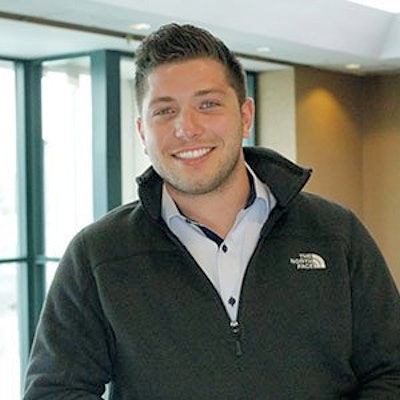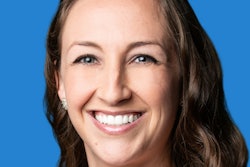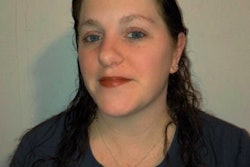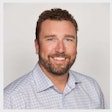
Ryan Evans, DDS, graduated from dental school in 2017 and immediately began working for Aspen Dental. It's a career path that many young dentists find themselves on, working for a dental service organization (DSO) immediately out of dental school.
Young dentists often say they begin with a DSO to help pay down their dental school debt or to learn more about the "real world" before opening their own practices. For Dr. Evans, however, the decision to start with Aspen Dental has greatly accelerated his career.
He is currently preparing to help open a fourth practice, including his second in his home state of California, and plans to move into practice ownership soon. He stated in a recent interview with DrBicuspid.com that his goal is to help build the Aspen brand in California.
 Ryan Evans, DDS.
Ryan Evans, DDS."I think it's a great place for patients to come in. They will feel comfortable, get high-quality care, and it will provide a great place for a lot people to work," Dr. Evans explained. "You know, because every Aspen office that opens creates 10 jobs overnight."
If it sounds like Dr. Evans is spewing a company line, it's because he has absolutely fallen in love with the DSO model of practicing. Yes, he's young. Yes, the DSO way is the only way that he has known since graduating. However, he believes there is much more to the DSO model of doing business than just using it as a stepping stone to private practice.
The DSO is also not the only exposure Dr. Evans has had to dentistry. He worked for a general practitioner for four years and ran the practice in his off year between undergraduate and dental school. That experience helped him know exactly what he wanted out of the clinical and business sides of the dental practice.
That knowledge also helped him immediately burst one of the biggest myths he heard about DSOs in dental school.
"You know, they tell you what dentistry to do and how to do it," Dr. Evans said as he began debunking that myth. "I can truly say I have never been pressured to do a procedure that I did not feel comfortable doing or that I felt was unnecessary. If I've ever felt the need to refer a case outside the office, they [Aspen Dental Management] respect my judgment in that sense. They are there to help you know the business and feel comfortable doing it. I've never been told what to do clinically."
Regarding compensation, Dr. Evans explained that the dentists are paid based on the performance of the overall office, not their individual production. He said that immediately eliminates any issues that may arise from one doctor doing a certain procedure that earns more income.
"Early on in my career, the first couple of months, my mentor doctor had no problem letting me do those implants, crowns and bridges, and the tougher cases because he wasn't worried about the money," Dr. Evans explained. "He told me, 'Hey, let's do what's going to be best for us and for our patients to get through the day.' "
He stated that other dentists right out of dental school told him their mentors weren't letting them do certain things because they were keeping all the production in their own chair and that, in practice, it was all about individual production.
"When you're working together in the business, it's not that way at all," Dr. Evans noted. "Everybody is a little bit more motivated since everybody is working toward the same goal instead of, "Well, this is yours and this is mine.' "
He also noted that he was able to focus just on the clinical side of dentistry. He didn't have to worry about human resources, payroll taxes, or any of those issues and that was important to him.
When asked about the hygiene model of his practice, with the question based on the Oklahoma hygienist who works for Aspen and was in charge of his own business model, Dr. Evans quickly replied that the hygiene business model was one of the things he truly liked about how Aspen set up its business.
"The hygiene business model really gives them [dentists] a sense of ownership, and they really do have control over a lot of the things that they do day to day," Dr. Evans said. "It reinforces that their business is a part of our business."
Of course, it's not all perfect every day. Many of the problems faced in practices of all sizes show up in his practice as well, Dr. Evans said. However, the DSO community mindset and number of resources have helped him immeasurably, he noted.
"When I have a question, I have a network nationwide to ask," Dr. Evans said. "I know a couple of guys in Florida who are doing some amazing implant work. I have a friend who lives in Illinois, and she's doing a ton of Invisalign. I can send her a picture, and we can look at it together and just bounce ideas off of each other. I have that network right at my fingertips, and that's something that I really enjoy. So far, everyone's more than happy to help me grow."



















